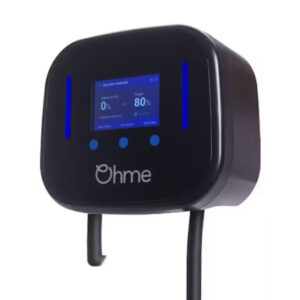The car industry has suffered delays in new vehicle deliveries since the turn of the year…
Initially this was due to a massive 3-day fire at Asahi Kasei Microsystems (AKM) semiconductor (micro-chip) factory in Nobeoka City, Japan at the back end of 2020.
This was further compounded by another semiconductor factory fire in March this year, this time it was at the giant Renesas Electronics factory in Hitachinaka, Japan – just north of Tokyo.
When these seismic events happened, it further weakened the micro-chip (semiconductor) supply chain, which was already suffering from the global shutdown caused by the Covid pandemic.
We’re seeing the knock-on effects of these events kicking in hard.
New car sales (especially full hybrids and all electric) are strong, but supply is difficult, with most major vehicle manufacturers struggling to complete orders until first quarter next year.
This seems to be everyone but Tesla. Why?
Tesla broke delivery records again in Q3 2021, and by a huge margin, and many people say there’s no way Tesla have produced or delivered so many cars amid a global chip shortage, as well as many other supply chain issues, including the lasting impact of the global pandemic.
But this is not the case. Tesla reacted quickly to mitigate disruptions caused by semiconductor shortages. Their electrical and firmware engineering teams worked to design, develop, and validate their own new variants of controllers in response to ongoing semiconductor shortages.
Tesla has been vertically integrating for years and is much more of a software company than an automaker. The way Tesla see it, the less they need to rely on suppliers and other companies, the more control they have over their development and production processes.
Although a very successful electric vehicle manufacturer, Tesla are still relatively small compared to large-scale global vehicle manufacturers like VW, and Ford. But small is an advantage in an era were programmers’ rule, and allows Tesla to be much more agile, as in this case with chips.
Luckily for us, these semiconductor shortages haven’t greatly impacted manufacturers of electric vehicle charge points. We’ve experienced some short-term shortages with Zappi and Hypervolt, but overall, these have been manageable and not caused to much of an installation delay.
Interesting our biggest seller ‘Wallbox Pulsar Plus’ has experienced no supply delays. We’ve installed 1000’s of these as they are small, stylish, come with an attached cable at an affordable price.
…and remember, you don’t need a Tesla charger to charge a Tesla, any type 2 charger will do

